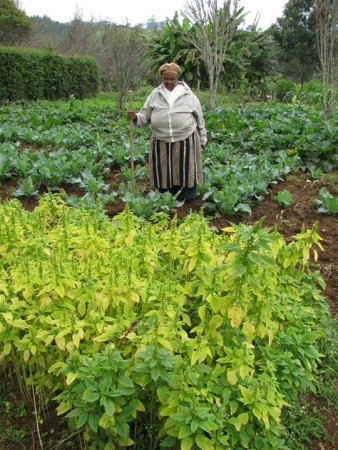Well…
First, plant breeders screen thousands of different types of crop seed stored in global seed banks to discover varieties with naturally higher amounts of micronutrients.
Nicely, and all too rarely, said.
Agricultural Biodiversity Weblog
Agrobiodiversity is crops, livestock, foodways, microbes, pollinators, wild relatives …
Well…
First, plant breeders screen thousands of different types of crop seed stored in global seed banks to discover varieties with naturally higher amounts of micronutrients.
Nicely, and all too rarely, said.
I came across this cool video about African indigenous vegetables via the Horticulture Innovation Lab newsletter. Made by a student at Rutgers University’s Center for Digital Filmmaking, it describes work led by Jim Simon of Rutgers and Steve Weller of Purdue University in Kenya and Zambia on growing and marketing plants like African nightshade (Solanum scabrum?), amaranth (Amaranthus spp), and spider plant (Cleome gynandra).
There’s another video on the website too. Well worth watching both, and indeed following the blog.
And if you want more video on African leafy greens, they feature in several episodes of Shamba Shapeup, Kenya’s version of Extreme Makeover: Farm Edition.
 Oh, and BTW: vote for me!!! I’m only about a thousand or so “likes” behind the leader. Ok, it’s a mere photo rather than a video, but still…
Oh, and BTW: vote for me!!! I’m only about a thousand or so “likes” behind the leader. Ok, it’s a mere photo rather than a video, but still…